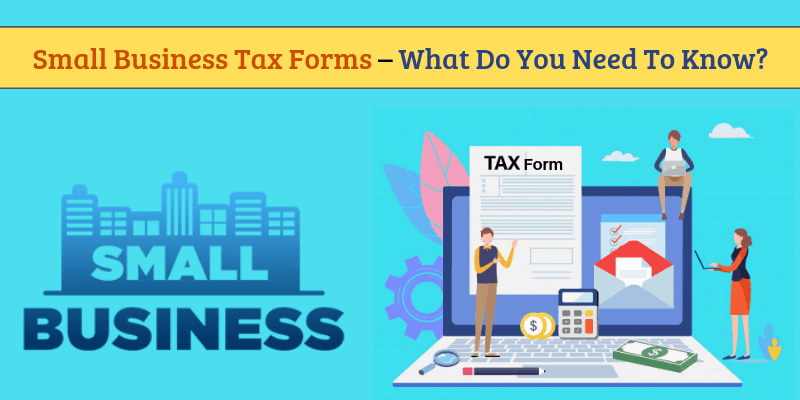
Everything You Need To Know About Small Business Tax Forms
The path of tax transformation – from handling individual taxes to filing business taxes – is not a smooth drive to process. Taxes are quite confusing to deal with, and business taxes are even worse to track down. In a crowd of infinite small businesses where every single business owner is trying to tame their taxes, some are still struggling to select the right tax forms.
But, there’s nothing to worry about. We have gathered plenty of information about tax forms for the self-employment and small business income tax that will help you in this tax season.
Different Types of Small Businesses & Their Tax Forms
According to a survey, more than half of the businesses in the U.S. alone are small businesses with one owner handling all the tasks. Such starter businesses are often called pass-through businesses and the person who takes care of it is referred to as a sole proprietor. The very basic reason that they are being called a pass-through business is that the net income is not too much. And, the income taxes of the business can be included with the personal tax of the owner.
A sole proprietor can make use of a schedule (either Schedule C or Schedule C-EZ) to calculate the business tax. Another type of sole owner business type is ‘Single Member Limited Liability Company’ (SMLLC) and they can use the same tax forms as of sole proprietors.
Schedule C or Schedule C-EZ
Generally, Schedule C or Form 1040 is used to estimate the net income amount of a sole proprietor. Given the title “Profit or Loss Form Business” by IRS, this form is used to report both income and losses of a self-employed taxpayer. Schedule C records every possible information of the starter business including cost of goods sold, business vehicle expenses, and the overall home business deduction amount calculation.
A sole proprietor or SMLLC can also use Schedule C-EZ, which is a simple one-page form, to file business income tax if their business meets the following requirements:
- The business expenses must be $5,000 or less for the year.
- The business doesn’t have any net loss for the filing year.
- Any assets (like vehicles or equipment) haven’t depreciated for the business use.
- The business must follow the cash method of accounting.
- The business won’t have any employees or inventory.
- The business isn’t relying on home office expenses deduction.
The overall amount of your net income is transferred to your personal tax return on Schedule C, which means no taxpayer can file their income taxes using Form 1040A or 1040EZ if they’ve business income.
Tax Form for Self-employment
The IRS asks every business owner who is not an employee to pay self-employment taxes corresponding to their net income of the business. Normally, self-employment taxes include Social Security and Medicare taxes. Business owners need to use Schedule SE, which requires business net income and a tax rate of 15.3 % of the net income, to file self-employment taxes.
Note: If your business has no income or dealing with a loss, you don’t need to file Schedule SE for that particular year.
Where to Get These Forms?
The IRS is a reliable source to get all of your business tax forms. However, if you don’t want to do your business taxes on your own, then consult with a tax preparer or use a tax preparation hosting software to do your business and personal taxes.
Looking Out for External Help?
Sagenext is always here to help individuals, small business owners and big accounting firms to experience a smooth tax season. It is easy to complete Schedule SE for small business owners, but they might need a professional tax-suite coupled with the cloud to fill other tax forms accurately.







